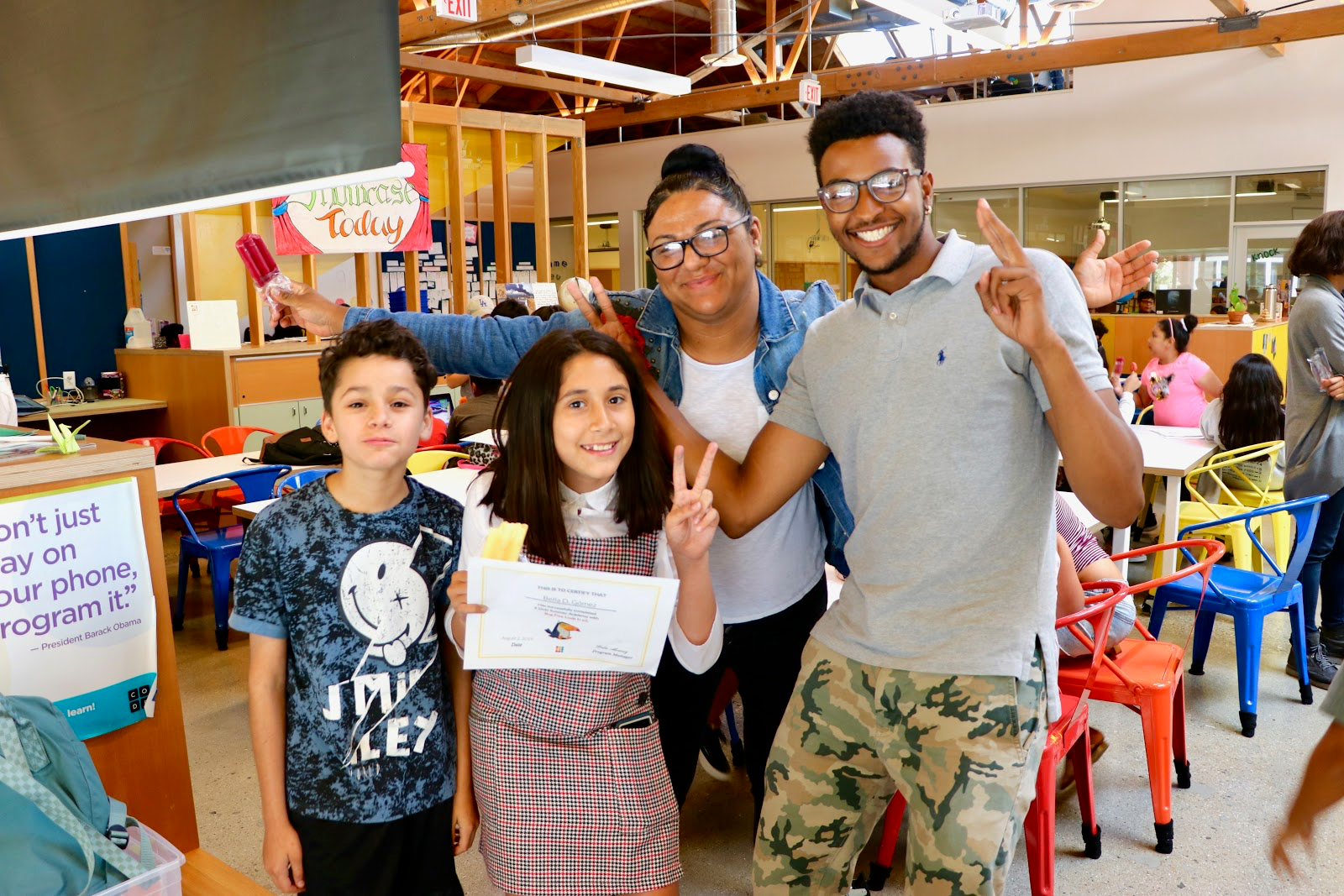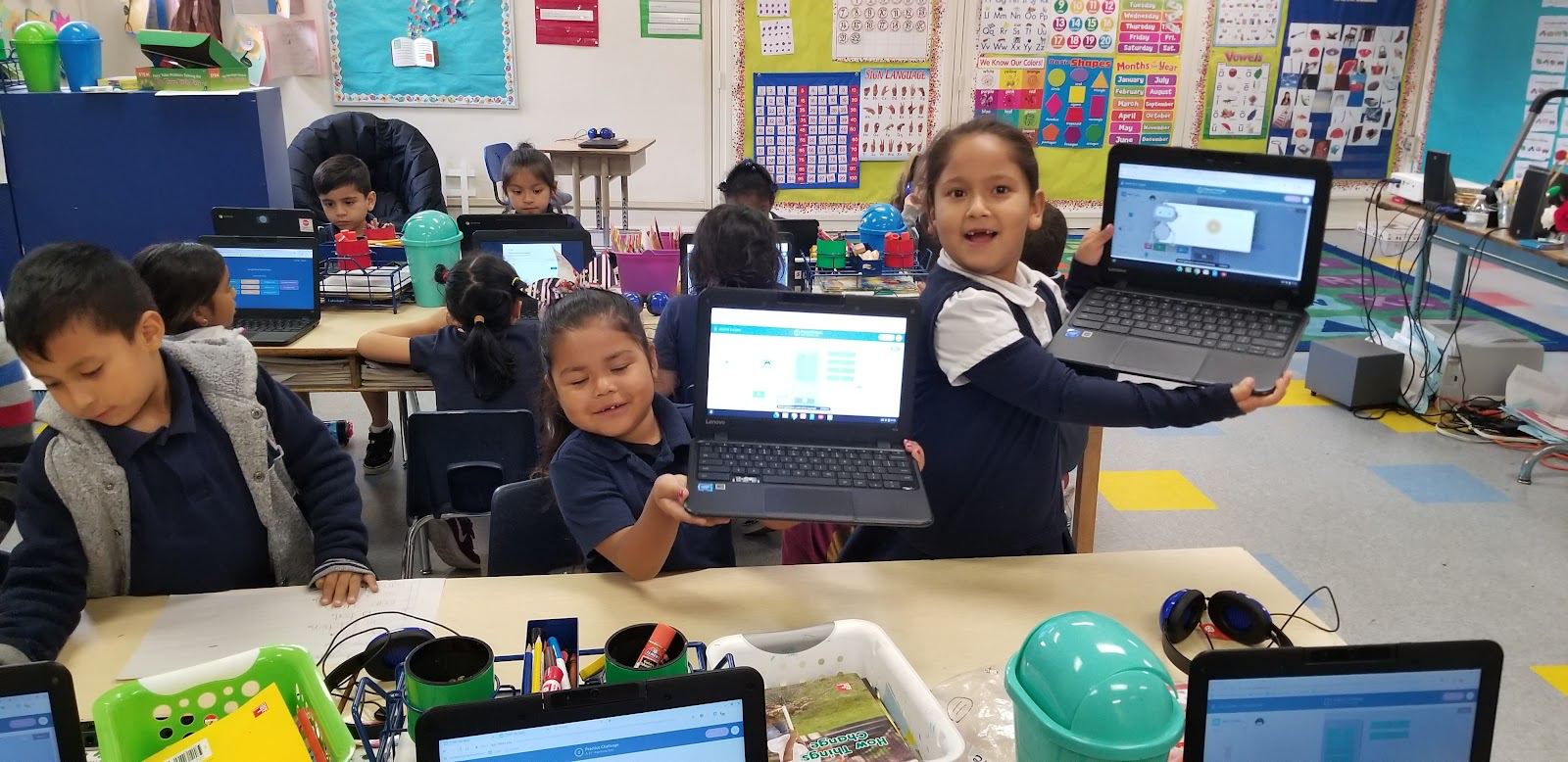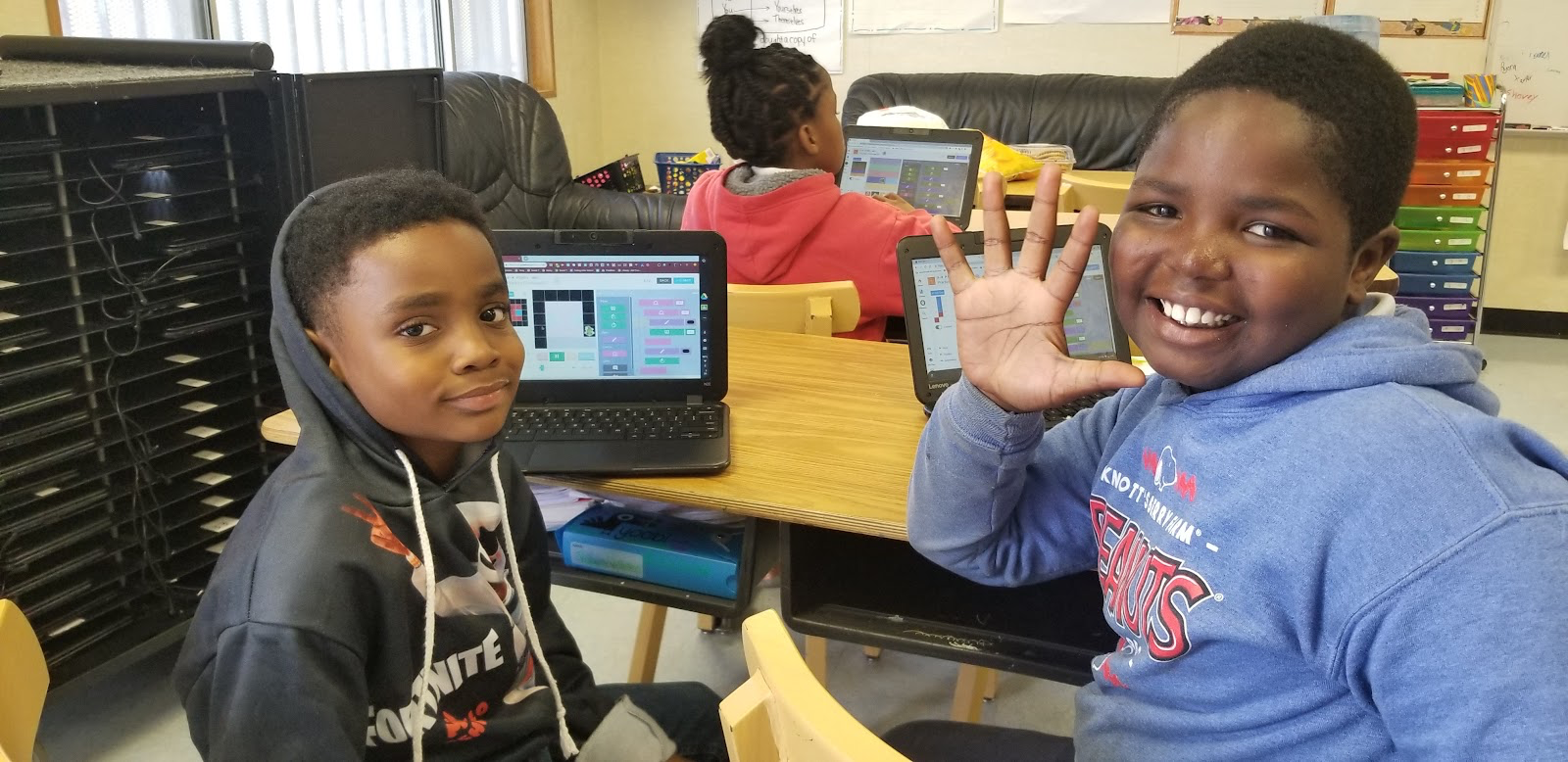LA2050 Blog
We’ve got access to the information that every Angeleno needs to make an impact. Our blog features the latest LA2050 news, announcements, features, happenings, grantee updates, and more.

Get Coding: K-6 Computer Science Education and Pathways to Transformation
PostedThis is an update on the winning proposal from the LEARN category in the 2019 LA2050 challenge.
9 Dots is a nonprofit organization dedicated to providing a transformative computer science education for every student. We fulfill this mission through in school and after school programming; innovative curriculum development; an online Platform that delivers lessons, teaching tools, and actionable learning insights directly to classrooms; and original research into how students learn and how underrepresented students can be engaged in CS more effectively.
9 Dots received a 2019 LA2050 LEARN grant in support of our Get Coding program. Through Get Coding, 9 Dots partners with Title I schools to build complete K-6 computer science (CS) education pathways for students in low-income communities. Get Coding combines our original coding curriculum and platform with comprehensive professional development services for teachers, including workshops, 1:1 coaching, and support from on-site “Coding Coordinators." 9 Dots Coding Coordinators work side by side with teachers in their classrooms to plan and deliver every class until every teacher is ready to teach CS independently.
A Tale of Two Students
In a 4th grade Get Coding class at Washington Elementary in Compton, a young student named D'mari confidently raised his hand. A 9 Dots Coding Coordinator, Francisco Montenegro, had asked for a volunteer to come to the front of the class and solve a coding challenge by thinking through the problem out loud. This can be extremely difficult both cognitively and socially. It requires a fundamental grasp of coding concepts and disciplined computational thinking, as well as the courage to stand in front of the class and the teacher, and potentially fail. But D'mari was fearless. He came forward, worked through the problem step-by-step, and found the solution.
In the same classroom, another student named Patrick circulated and assisted other students after completing his coding challenge. Patrick is especially drawn to paired programming where he can work alongside his peers, sharing his strategies and thought processes in coding. He is able to coach other students through complex sequences and “debugging" steps when a solution fails. Patrick understands that errors in code are a productive part of learning and he helps his 9 Dots instructor and classroom teacher establish a culture of collaboration and perseverance.
But last year, both of these students had a very different attitude. As 3rd grade students enrolled in coding for the first time, both D'mari and Patrick were quick to feel discouraged if a coding challenge appeared too difficult. They especially didn't want to fail. However, this year, their problem solving and perseverance transformed their presence in the classroom as they learned that experiencing failure doesn't limit their abilities, but strengthens them.
Building K-6 Pathways
9 Dots' LA2050 LEARN grant is addressing the new Student Education Pipeline metric. The stories of D'mari and Patrick demonstrate how learning to code in school across grade spans and developmental stages offers young students the opportunity to really evolve as coders, creative thinkers, problem solvers, and leaders. These complete CS education pathways are extremely rare at the elementary school level. But 9 Dots wants to change that.
This year, 9 Dots has already built out complete K-5 or K-6 education pipelines at eight of our Title I partner schools. This means that students at these schools will begin learning coding in Kindergarten with digital literacy, basic pattern recognition, and sequencing activities and progress, grade by grade, to JavaScript and other complex coding languages.
What James Said
Too many students like D'mari and Patrick would leave elementary school without learning coding if it wasn't for our 9 Dots Coding Coordinators, two of which are supported by LA2050 funding. Our Coding Coordinators are dynamic young teachers and CS experts who reflect the diversity of Los Angeles classrooms. They are essential to our strategy of training teachers to build long-term CS capacity at schools, modeling best practices, and establishing an inclusive debugging culture that encourages all students to see themselves as coders.

9 Dots Coding Coordinators Yoanna Cisneros and James Ward with coding students
James Ward, a second year Coding Coordinator at Roosevelt Elementary, was approached by the mother of a young black student in his class. She told him how excited her son was to have James, a black man, as his teacher and that he planned on becoming an engineer when he grew up. James was moved. “I can't recall a time throughout my education when CS seemed like a possible career or future," he told us. “That's why the work we're doing matters. It's imperative that Black and Latinx students see themselves represented in the CS field because if they don't, how can they even begin to imagine or consider a future in CS? I want my students to see themselves while I teach."
By the Numbers
With the support of LA2050 and the Goldhirsh Foundation, Get Coding is serving 265 teachers and over 6,500 students at 22 elementary schools in the Los Angeles (LAUSD) and Compton (CUSD) Unified Schools Districts. Ninety percent of the students we serve are students of color and 82% are Low or Very Low Income.
9 Dots is working to develop complete CS education pathways at 10 schools by the start of the 2020 school year by building a CS trained educator workforce, one trained teacher at a time. With a gradual release model, 154 teachers are currently receiving full classroom support, 54 are receiving partial support, and 46 are “graduated" independent teachers. So far, 96 percent of teachers surveyed enthusiastically support continuing the program at their school next year.
9 Dots measures student progress through lessons and Level Up coding challenges. In addition, to ensure that classrooms are joyful and engaging and that all students can envision themselves as coders, we regularly survey students on their interest and self-perception. Our mid-year survey results show that 87 percent of students report that they like coding, 83 percent identify as coders, and 83 percent believe they belong in a coding classroom.

Get Coding Kindergarten students at Longfellow Elementary show off their coding solutions
What We Learned and A Look Ahead
In the next six months we will be using data and feedback from students and teachers to enhance and adjust our approach as needed. Our initial LA2050 target was to end the 2019-20 school year with 100 teachers prepared to be independent CS instructors. However, today's elementary school teachers are swamped with demands on their time and resources and initial feedback indicates that not every teacher currently receiving partial support may feel confident enough to teach on their own at the close of the year. 9 Dots puts the real world experience of teachers and students first, and we are adjusting our model to extend continuing partial support to teachers who need it.
We will continue to work with administrators to add additional grade levels at our current partner schools. As these CS education pathways deepen, we are developing new ways of measuring and tracking our impact. For example, we are developing a system of unique student login ID's that will allow us to track individual student proficiency and motivational progress across grades. In addition, we are updating our curriculum with a tagging system to measure not just coding proficiency but associated problem-solving strategies.
9 Dots understands that not every student will or should become a software developer. But every student will be navigating a 21st century professional, social, and civic landscape transformed by CS and other new technologies. An early coding education can help prepare them to understand and meet those challenges and, when they encounter failure, persevere.
Next year D'mari and Patrick will start their third year in Get Coding and will begin learning JavaScript. We can't wait to see what they create.

Longfellow Students complete their fifth lesson